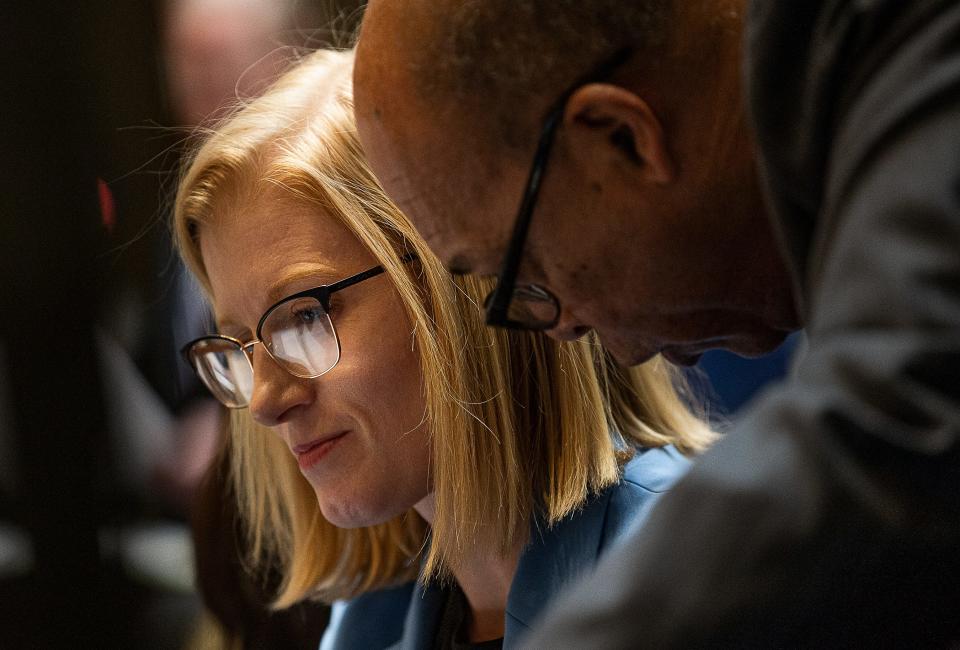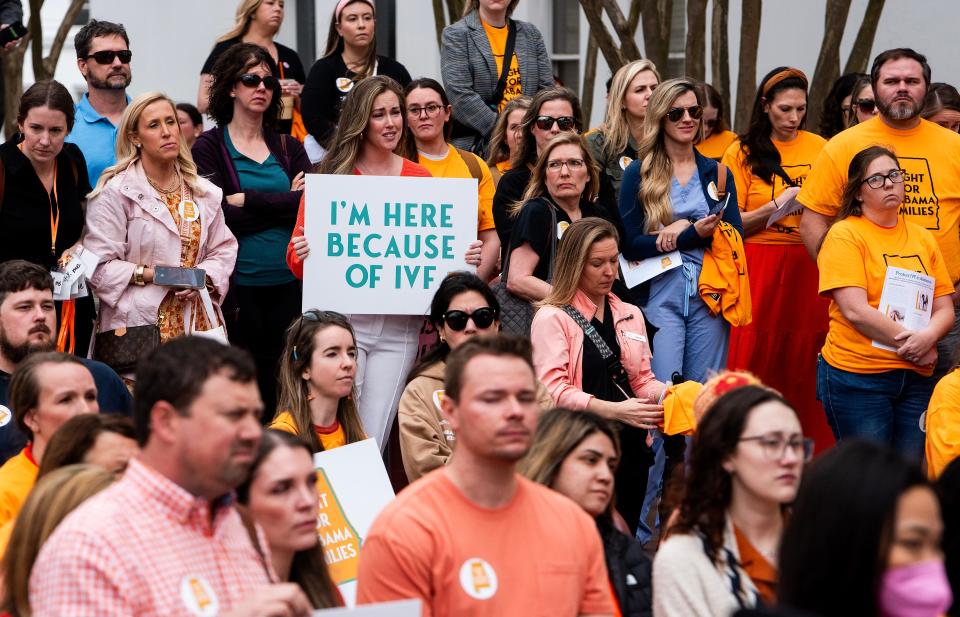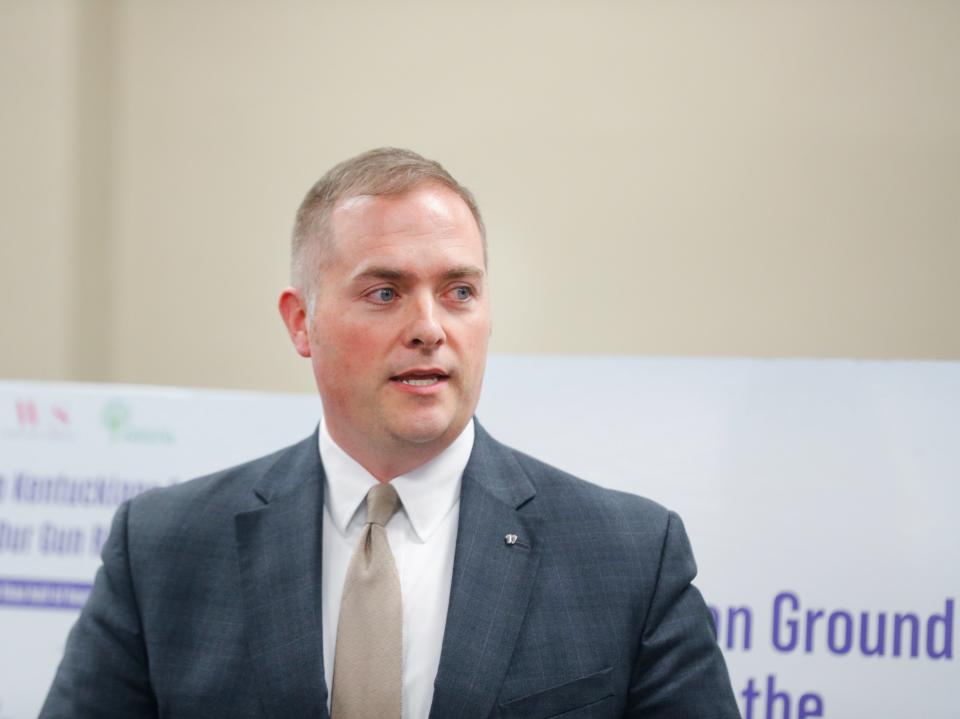Kentucky lawmakers are proposing to protect IVF access after recent Alabama court decision
FRANKFORT — A recent Alabama Supreme Court decision has catapulted in vitro fertilization into the national spotlight and prompted three Kentucky lawmakers to propose legislation protecting IVF access in the state.
One of those lawmakers is Sen. Cassie Chambers Armstrong, D-Louisville, who filed Senate Bill 301 that protects IVF providers from criminal liability when providing fertility services.
Chambers Armstrong said in a statement that the bill is a direct response to the Alabama Supreme Court ruling that frozen embryos can be considered children. Her bill clarifies that IVF is a legal procedure in the commonwealth.
"Kentuckians pursuing IVF treatments should not fear the abrupt cessation of these services," Armstrong said. "Every individual aspiring to start a family deserves the opportunity to do so."

Although they're separate issues, abortion and IVF are now linked because of the Alabama ruling. Even some anti-abortion Republicans in Kentucky are concerned about ensuring access to IVF, Senate President Robert Stivers told reporters this week.
"I've heard people that may be very strict, right leaning pro-lifers in the legislature looking at bills to make sure that in vitro fertilization is not put at risk," Stivers said.
Since the Alabama decision, fertility clinics in that state are stuck in limbo and have halted services when it comes to IVF treatment because of questions surrounding the legal status of the therapy.
IVF is a treatment option for infertility where eggs are removed from a woman’s ovary and combined with sperm to form an embryo outside the body.
American doctors typically take out the eggs in bulk, where there might be up to 15 embryos created and needed to be stored in the freezer, said Jill Wieber Lens, a professor at the University of Arkansas School of Law.
The Alabama Supreme Court ruled that these frozen embryos are considered children under state law, and parents are allowed to sue for the wrongful death of their child if the embryo is damaged while in storage.
Alabama lawmakers are also acting on the ruling and passed a bill out of the House there on Thursday that would protect IVF treatments. The bill already passed through the Senate.

Wieber Lens said a fertility clinic is only at fault if it had "unreasonable conduct" with its storage, but clinics will still have to evaluate what security measures need to be implemented to protect their facilities.
She also said this case could affect whether clinics will continue storing embryos at all.
“IVF clinics have paused to figure out what this court case ruling means and are worried about storing all these embryos in the freezer,” Wieber Lens said. “Other countries don’t take out as many eggs and freeze the embryos, which is something American doctors might consider.”
SB 301 isn't the only bill in the Kentucky Senate dealing with IVF protections, though.
Sen. Whitney Westerfield, R-Fruit Hill, is the primary sponsor of Senate Bill 373, which limits liability for health care providers if there is a loss or damage to a human embryo.

Westerfield said his motivation behind filing the bill is his wife and his experience with IVF. He said his son was conceived through an adopted embryo, and his wife is 15 weeks pregnant with triplets from embryos that they adopted.
"I firmly believe in two things," Westerfield said. "One, that life begins at conception, and two, IVF should be available to men and women who want to be moms and dads."
There's also legislation in the House in response to the Alabama court case.
More: How does IVF actually work? Plus what the process is like and how much it costs.
Rep. Daniel Grossberg, D-Louisville, introduced House Bill 757, which states that "a fertilized human egg or embryo that exists outside of the human body shall not be considered an unborn child."
"My bill would clarify that women have the right to pursue IVF and would hold them and their doctors free from prosecution for trying to grow their families through the miracles of modern science," Grossberg said.
Gov. Andy Beshear said at a press conference Thursday that IVF is a "gift from God" and spoke in support of the bills that have been introduced in the legislature.
"Anything that needs to be done to protect IVF or IVF access, I am 100% for," Beshear said.
Reporter Rebecca Grapevine contributed to this report. Reach reporter Hannah Pinski at @hpinski@courier-journal.com or follow her on X, formerly known as Twitter, at @hannahpinski
This article originally appeared on Louisville Courier Journal: Kentucky lawmakers want to protect IVF access amid Alabama Court case

